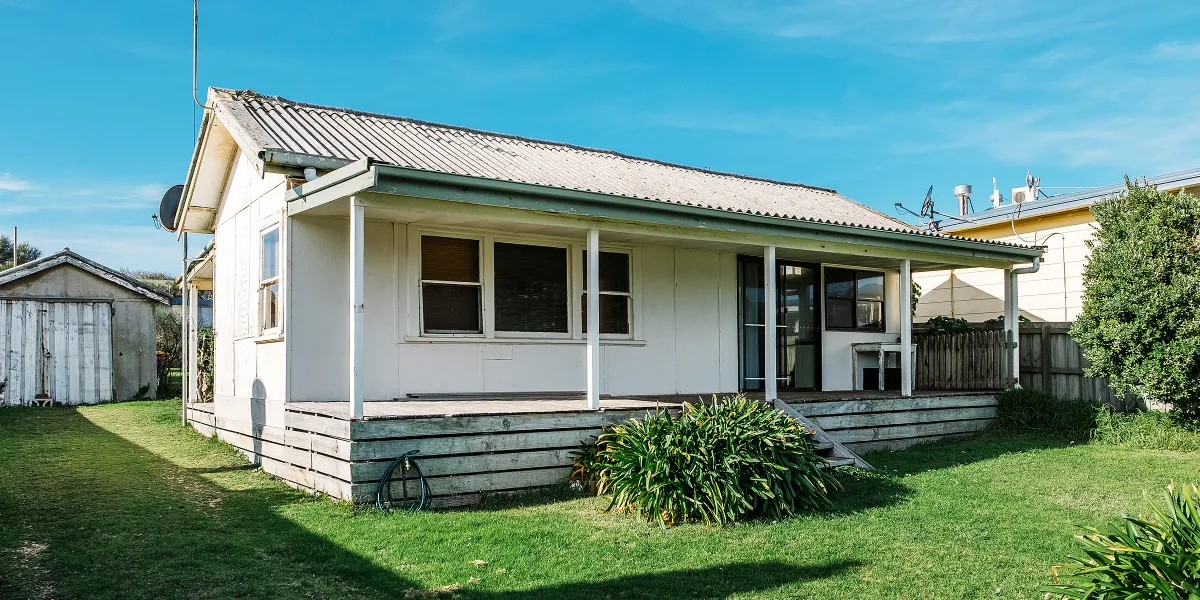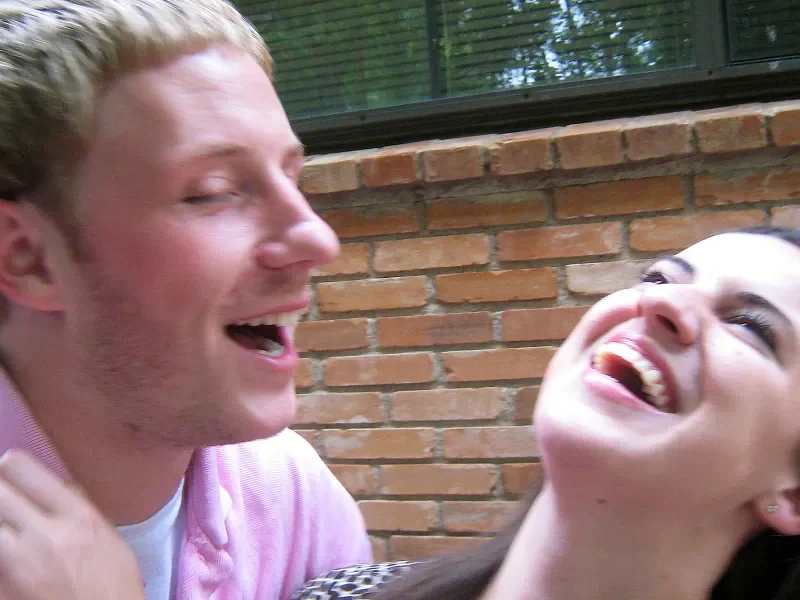After my grandmother’s death, my husband pushed me to sell her house — but a hidden letter in the attic revealed a secret that ended up changing everything.
My name’s Mira, and I’m 36. I live just outside Portland, Oregon, in a quiet little neighborhood where people wave to each other from their porches and kids ride bikes till the streetlights flicker on. From the outside, my life probably looks like something off a greeting card.
I’ve been married to Paul for seven years. He’s 38, tall and lean, always dressed in crisp shirts and polished shoes, even on weekends. He works in finance, a job that keeps him glued to his phone most of the time, but at home, he slips easily into the role of the perfect dad.
We have twin girls, Ellie and June. They’re four years old, and somehow, they got all of Paul’s genes. Golden curls, dimpled cheeks, and those bright blue eyes that sparkle when they’re about to do something they shouldn’t. I love them more than anything, even when they leave Play-Doh stuck in the carpet or spill juice on the couch for the hundredth time.
From the outside, our life looked perfect. We lived in a cozy house with white shutters and a lemon tree in the backyard. On Sundays, we walked hand in hand to the farmer’s market, sipping coffee while the girls picked out tiny jars of honey.
Friday nights were movie nights, usually “Moana” or “Frozen” for what felt like the millionth time, and the girls always fell asleep in a tangled heap before the movie ended. Paul would carry them upstairs, and afterward, we would finish the popcorn together in silence.
He never forgot birthdays or anniversaries. Sometimes, I’d find sticky notes on the bathroom mirror with little hearts drawn on them. He used to tell me I was the “calm” in his storm. And I believed him. I really did. Because when you’re living inside love, it doesn’t feel like a fairytale. It feels like gravity, steady, invisible, and always there.
But everything started to shift the day my grandmother died.
She was 92 and still lived in the same small house where she had raised my mom. It sat quietly on a hill, surrounded by hydrangeas and old oak trees. That house was my second home growing up.
She used to bake lavender cookies and pour tea into mismatched cups while telling me stories about her childhood during the war. The whole place always smelled like her. Lavender soap, Earl Grey tea, and that faint powdery perfume she never stopped wearing.
Paul came with me to the funeral, holding my hand so tightly it almost hurt. I remember glancing at him during the service. His jaw was tense. His eyes looked damp and tired.
I thought he was grieving with me. I thought he understood. But now I’m not so sure.
After the service, while the girls stayed with my sister, I went back to Grandma’s house alone to collect the last of her things. I wasn’t ready to say goodbye to it. Not yet.
Paul wasn’t happy about that.
“We need the money, not your memories,” he said, standing in the doorway with his arms crossed, his voice low but edged with irritation.
I turned to look at him, confused. “The money? Paul, it’s barely been three days since she passed. Can’t we just… slow down a bit?”
His eyes flicked toward the stairs, then back to me. “I’m just saying, it’s an old house. It needs work. We could use the cash. You’re dragging this out.”
I didn’t reply. I just stood there, still holding the afghan blanket she always draped over her armchair. My throat felt tight, like I’d swallowed something sharp.
The sky outside was dull and gray, the kind that presses down on your chest. Inside the house, everything felt heavy. There were half-eaten pies left behind from the repast, empty glasses on the dining table, and that thick silence that comes after everyone leaves.
I walked slowly to her bedroom. The bed still had the same floral quilt she’d had for decades. I sat down carefully, the springs beneath me letting out a soft groan, like they were mourning too.
Paul came in without knocking.
“Mira,” he said, standing stiffly in the doorway, “it’s getting late. We should go.”
“I just need a few more minutes.”
He sighed. “What else is there to pack? We’ve already been here all day.”
I didn’t answer. I was staring at the photograph on her nightstand. Grandma was holding me as a baby, and we were both laughing. Her laughter echoed in my mind, soft and kind.
As I stood up to leave, I heard someone call my name. I turned to see Mrs. Callahan, Grandma’s longtime neighbor, standing just outside the gate. She must’ve been in her 70s, thin and small, always wearing cardigans no matter the season. She looked nervous.
“Mrs. Callahan,” I greeted her, walking over.
She glanced behind me at Paul, then stepped in closer.
“I wasn’t sure if I should say anything,” she whispered, her voice trembling slightly. “But your grandmother asked me to give you this. She said to wait until… until after.”
She slipped something into my hand, a small brass key. It was old-fashioned and cold against my skin.
I stared at it, puzzled. “The attic key?”
Mrs. Callahan nodded slowly. Her eyes looked wet, like she’d been holding something in for too long.
“What do you mean by that? What was my husband doing here?” I asked.
Her lips pressed into a tight line. “That’s not for me to tell. But your grandmother… she wanted you to find out for yourself.”
I felt a strange chill crawl up my spine.
Paul had wandered back to the car, tapping on his phone.
I took a deep breath and turned to Mrs. Callahan. “Thank you.”
She gave a faint nod and walked away without another word.
I stood there for a moment, staring at the key in my palm. Then I turned to Paul.
“Can you take the car and head home with the girls? I’ll call a cab later. I just… I need a little more time.”
He looked up from his phone, frowning. “Mira, seriously?”
“I won’t be long.”
He opened his mouth to argue, but something in my face must have stopped him.
“Fine,” he muttered, brushing past me. “Don’t take all night.”
I watched him drive off, then turned back toward the house. My hands trembled slightly as I climbed the staircase. The wood creaked under my weight, each step louder than I remembered.
At the top, I hesitated. The attic door was small, painted over several times, and the knob was slightly crooked.
I slid the key into the lock. It clicked.
My heart pounded as I twisted the knob and pushed the door open.
When I unlocked the attic, I didn’t know what I was expecting. Maybe a box of old photographs, one of Grandma’s hidden cookie tins, or even a forgotten treasure from her past. I thought there might be a diary filled with heartfelt memories.
But when I stepped inside, it was just… quiet. The air was dry and smelled like cedar and dust. The floor creaked beneath my feet as I walked further in. The light from the single bulb flickered once, then steadied. Everything looked ordinary. Stacks of yellowed books, cardboard boxes labeled in faded marker, a pile of afghans folded neatly in the corner.
Then I saw it. A brown leather suitcase was tucked near the far wall, its edges worn smooth from time and use.
I gasped. I remembered that suitcase. I used to climb on top of it when I was little, pretending it was a pirate’s treasure chest. Grandma would play along, handing me “gold coins” made of wrapped chocolate and laughing every time I yelled, “Aye aye, captain!”
I knelt beside it and slowly unbuckled the latches. Inside were layers of old photo albums and envelopes, some with rubber bands barely holding them together. There were property records, old insurance papers, utility bills, and at the very top, an envelope with my name on it.
The handwriting was shaky, but unmistakably hers.
“For Mira,” it read.
My throat tightened. My fingers trembled as I tore it open.
The letter began, “If you’re reading this, my dear, it means I’ve left this world. I kept this from you to protect you. But even from above, I’ll try to keep you safe.”
I swallowed hard, already feeling a weight pressing down on my chest.
She wrote that about a year before she passed, Paul had started visiting her behind my back.
I blinked at the words, confused at first. Then I read on.
He told her she should sell the house and move into a care facility. He claimed that we needed the money and warned her not to tell me anything, or else my marriage would fall apart.
She said he visited often, always well-dressed and polite on the surface, but there was something cold in his eyes. At first, she refused. She didn’t want to believe anything bad about the man I had married.
But Paul was persistent. He said things that frightened her, things about our finances, about me, and about losing the house if she didn’t act quickly.
Eventually, she gave in. She signed some preliminary paperwork but never followed through on the final sale. She regretted it deeply and wrote that she was sorry for even entertaining his lies.
My eyes burned. My hands were shaking so badly that I had to rest the letter on my knees.
Then came the last part of the letter, in lines I will never forget:
“If you can prove Paul deceived me, the house is yours. I left all the documents in your name. Be careful, my dear. Paul needed a lot of money, and I don’t know why. I hope he doesn’t drag you and the children into trouble.
– Love, Grandma Elizabeth.”
I sat there for a long time, the attic suddenly colder than before. My mind felt numb. I read the letter again. Then I read it a second time. It felt impossible to believe.
Paul, the man who kissed me every night before bed, who helped bathe our daughters, who told me I was the love of his life, had blackmailed my dying grandmother.
I reached into the suitcase and pulled out everything. There was the deed to the house, her will, the signed but incomplete sale agreement, and several other documents that confirmed everything she had written. She had named me the sole beneficiary of the property months before her death.
By the time I climbed back down, the sun had disappeared. I called a cab and carried the suitcase to the curb. I didn’t go straight home. I stopped at a 24-hour storage facility and locked the suitcase inside one of the smallest units they had. After that, I drove to the bank and placed the most important documents, the will, the deed, and the letter, into a safety deposit box registered under only my name.
I didn’t sleep that night.
When Paul walked in the next morning, still in his button-down and tie, I was waiting for him in the kitchen.
“Where are the girls?” he asked casually, setting down his keys.
“At my sister’s,” I replied, staring at him. “I needed to talk to you first.”
His smile faded. “Mira, what’s going on?”
I took a deep breath. “Why were you pressuring my grandmother before she died? What did you need the money for?”
He froze.
His lips parted, but no words came out at first. Then he gave a short, fake laugh. “What are you even talking about? Did someone say something to you at the funeral? You’re tired, Mira. You’re grieving. I get it.”
“No,” I said, quietly but firmly. “Don’t do that. Don’t try to gaslight me.”
He shifted uncomfortably. “This is ridiculous.”
“I found her letter, Paul. I found everything. The deed is in my name. She wrote it all down. Every single thing you told her.”
That’s when I saw it, the flicker of fear behind his eyes. The mask started to slip.
“She misunderstood,” he said quickly. “I never forced her. I was just trying to help. The house needed work, and we’re not exactly swimming in cash, Mira. You know that.”
“Why didn’t you come to me?”
“I was trying to protect you. The investment… it was supposed to fix everything.”
I narrowed my eyes. “What investment?”
He hesitated.
“You might as well tell me the truth now,” I said. “Because I already know you lost money. What I don’t know is how much and where it went.”
He sat down heavily at the kitchen table, burying his face in his hands.
“A year ago,” he began, “a guy from work — Jason — said he had an inside scoop on this crypto startup. Guaranteed returns. Triple what we’d put in. I thought if I could turn a quick profit, we could finally stop worrying about the mortgage, Ellie’s preschool tuition, all of it.”
“So you gambled our savings?”
“Two-thirds of it,” he said quietly.
I felt like the air had been knocked out of me.
He continued, “And when it crashed, I panicked. I started moving money around. Told you we had some extra tax bills and that the roof needed work. I thought I could fix it before you ever found out.”
My hands clenched into fists. “So instead, you went behind my back and tried to bully a 92-year-old woman into selling her home — the only place that’s ever felt like mine?”
“I didn’t mean for it to go that far.”
“But it did. And you lied to me. You lied for a year.”
He stood up, walking toward me. “Mira, please. I know I messed up. But I did it for us. For the girls. Don’t throw our whole life away because of one mistake.”
“One mistake?” I laughed bitterly. “You stole our savings. You manipulated my dying grandmother. You made me question my own grief. That’s not a mistake, Paul. That’s who you are.”
We argued for hours. I yelled. He cried. He begged me not to ruin our family and said he would make things right. He promised to get therapy, to come clean about everything, and to never lie again.
But I couldn’t even look at him.
That night, I slept on the couch. The next morning, I called a lawyer.
By the end of the month, the divorce papers were filed. I didn’t shout or slam doors. I let my attorney handle the mess, and I made sure the girls stayed shielded from it all. Paul moved out two weeks later. I kept the house. The one that was never his to begin with.
I had the locks changed. I repainted the living room. I found an old photograph of Grandma and me baking together and placed it on the mantel. I framed her letter and set it up in my home office, not as a reminder of betrayal, but as a reminder of love.
Because in the end, she protected me. Even from the man who once promised he would never hurt me.
And that, more than anything, is what saved me.


